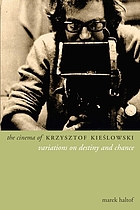
At its most basic, the auteur theory treats the director of the film as the person most responsible for its style and meaning, making the director the author of the film. As might be expected in books about individual filmmakers, the auteur theory is well represented. Filmmakers analyzed multiple times from an auteur approach include Jean-Luc Godard, Robert Bresson, Federico Fellini, Pier Paolo Pasolini, Bernardo Bertolucci, Nicolas Roeg, Peter Weir, and Jane Campion.
Jean-Luc Godard received the auteur treatment in The Films of Jean-Luc Godard by Wheeler W. Dixon, who focuses on Godard’s lament on the death of cinema, and from Richard Brody, who in contrast cites Godard’s faith in cinema and his belief that filmmaker and film are inextricably tied together in his book Everything Is Cinema: The Working Life of Jean-Luc Godard.
Critics note the influence that Catholicism had upon Robert Bresson’s films. In Robert Bresson: A Passion for Film, Tony Pipolo claims that a religious and philosophical examination of Bresson’s life and a close reading of his films reveal “moral rigor” and the “divine within the human.” Keith Reader, in Robert Bresson, explores the changing religious and philosophical point of view in Bresson’s films.
Federico Fellini is often treated as an auteur. Peter Bondanella in The Films of Federico Fellini, John Caldwell Stubbs in Federico Fellini as Auteur: Seven Aspects of His Films, and Frank Burke in Fellini’s Films: From Postwar to Postmodern all take multiple approaches to Fellini’s films that ultimately point to him as an auteur. Though not strictly presenting an auteur piece, Sam Rohdie writes a poststructuralist exploration of the themes in Fellini’s works in his Fellini Lexicon.
Maurizio Sanzio Viano, in A Certain Realism: Making Use of Pasolini’s Film Theory and Practice, argues that Pier Paolo Pasolini intends his films to achieve a “certain realism” in contrast to the neo-realists prominent in Italy at the time, and that he also inserts elements of autobiography. Colleen Ryan-Scheutz, though discussing gender in Sex, the Self, and the Sacred: Women in the Cinema of Pier Paolo Pasolini, does not take a feminist approach; instead she explores the centrality of women in Pasolini’s films that call for Italians to return to authenticity in a capitalist society.
Bernardo Bertolucci receives a primarily auteur treatment with a bit of Foucault-style analysis from Robert Phillip Kolker, who claims in his book Bernardo Bertolucci that Bertolucci is created by his films. Claretta Tonetti provides a film-by-film analysis in Bernardo Bertolucci: The Cinema of Ambiguity, claiming that his work reflects Bertolucci’s search for meaning during each phase of his life.
In Fragile Geometry: The Films, Philosophy, and Misadventures of Nicolas Roeg, Joseph Lanza argues that Roeg’s films reflect his skewed view of the world, that he works in the commercial film industry but subverts convention. Neil Sinyard notes the same tensions between commercial interests and artistic expression in The Films of Nicolas Roeg and claims that Roeg falls in the British tradition of the mad poet.
Marek Haltof finds themes in Peter Weir’s work about outsiders trying and failing to adapt to a culture different than their own in Peter Weir: When Cultures Collide. In The Films of Peter Weir, Jonathan Rayner argues that the merger of the European art film and Hollywood genre conventions reveals themes of cultural clashes, along with the opposing themes of liberty versus repression and youthful innocence versus aged disillusionment.
Auteur theory is applied to a full range of filmmakers. Marek Haltof produced another auteur piece in his book The Cinema of Krzysztof Kieślowski: Variations on Destiny and Chance, covering Kieślowski’s films in the context of Polish history and filmmaking. In All or Nothing: The Cinema of Mike Leigh, Edward Trostle Jones argues that Mike Leigh brings out the complexity in the ordinary. Hubert Cohen takes an auteur approach in Ingmar Bergman: The Art of Confession, claiming that Bergman’s films are personal and confessional. Francisco Aranda treated Luis Buñuel as an auteur as he wrote Luis Buñuel: A Critical Biography, which examines the impact society had upon Buñuel and his films.
Two studies, both titled Jane Campion, add additional theoretical frameworks to auteur theory. Dana Polan explores the idea of authorship as influenced by poststructural and cultural studies in her work; Deb Verhoeven also cites Campion as a contemporary auteur, but takes it a step further by developing a postauteurism theory in which Campion “fashions” herself as an individual, a social subject, and a “name” established and connected to her films.
 The Cinema of Krzysztof Kieslowski: Variations on destiny and chance
by
The Cinema of Krzysztof Kieslowski: Variations on destiny and chance
by